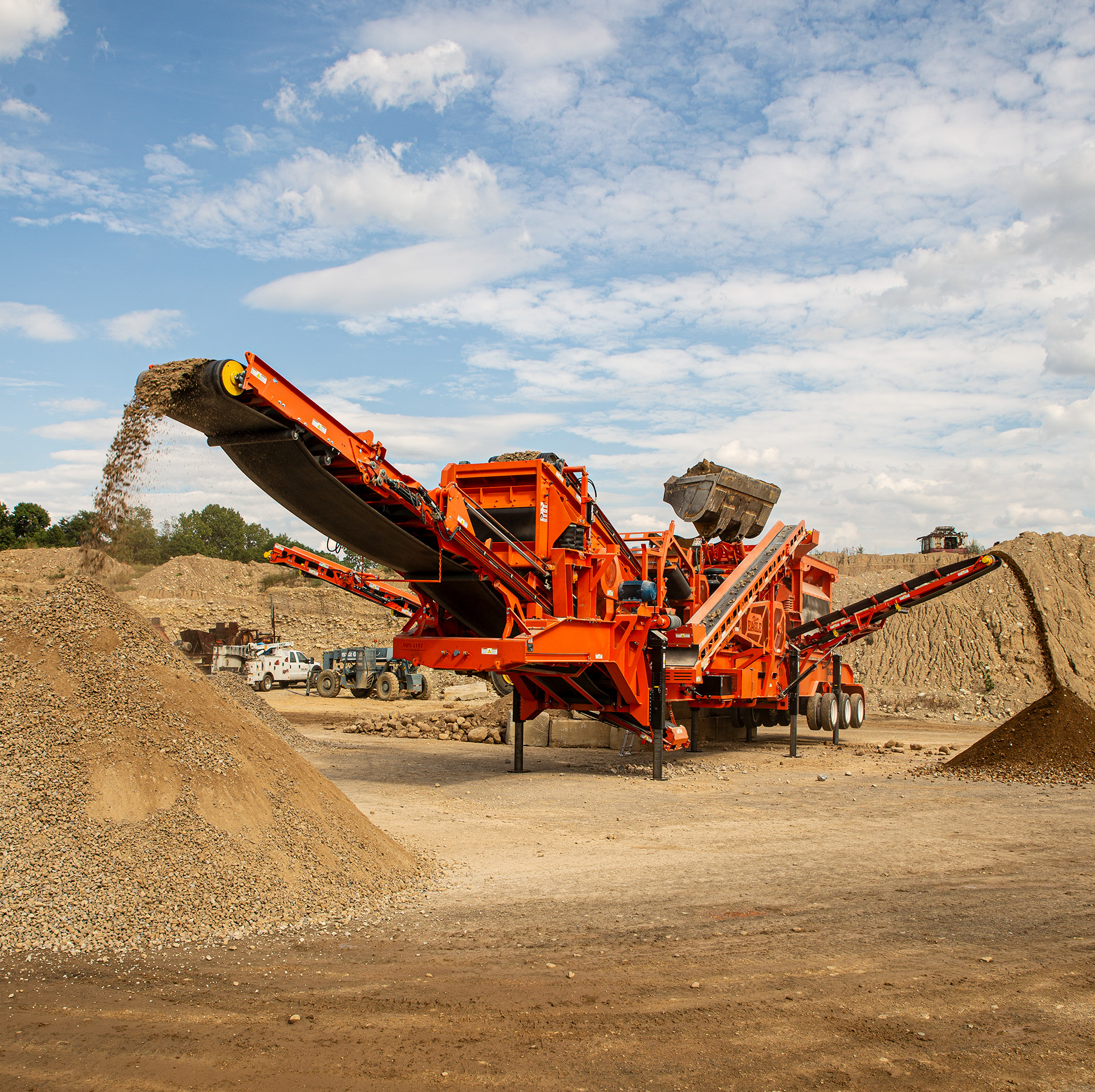Rock crushers are essential pieces of equipment in the mining, building, and aggregate manufacturing industries. They take on the challenging task of reducing big, hard materials to manageable sizes for use in industrial projects, structures, and roadways. However, contractors and organizations need to consider more than just physical strength when investing in one. Finding the ideal balance between cost, efficiency, and power is crucial. To get the greatest outcomes for production and profitability, it’s important to carefully consider these criteria while learning how to choose a rock crusher.
Power To The Heavy Workforce
In essence, rock crushing machines are all about the power. Rock crushers are designed to crush granite, limestone, or concrete. Crushers typically are categorized based on the type of force used: compression or impact.
- The jaw crusher is designed for the first stage of crushing and uses compression to break large rocks down into smaller fragments.
- Cone crushers crush from medium to fine by applying pressure with a rotating wheel.
- Impact crushers use high-speed force to break down soft or less abrasive substances.
The level of power needed depends on your application. While mining and quarries may require large machines capable of processing tons of materials per hour, smaller contractors may only need machines with moderate crushing powers. It is possible to waste resources by underestimating the amount of power required or produce inefficiently if you overestimate.
Maximum Output With Minimum Waste
Raw power alone is not enough. Efficiency measures how efficiently the crusher converts energy and time into useful material. Modern designs concentrate on reducing downtime and increasing throughput. They also minimize wear and tear on components.
Among the essential elements that might boost productivity are:
- Adjustable settings to allow operators to control the output size.
- Automated machines can monitor the performance of machines and make adjustments in real-time.
- Energy-saving technologies that can reduce fuel or electric use.
An efficient crusher boosts daily production while reducing operational costs. The less time you spend on maintenance and adjustment, the more time your machine can be productive. For businesses, it means shorter project schedules and increased profitability.
Cost: Balancing Operating And Investment Expenses
The cost to own a rock-crushing machine goes beyond its price. Ownership includes fuel and electricity consumption as well as replacement parts, potential downtime, and maintenance. To make the most of your investment, it’s crucial to evaluate long-term expenses.
Contractors need to consider the total ownership cost when choosing a rock-crushing machine. A cheaper machine can save money in the short term, but may need more frequent repairs. It could also consume more electricity and offset initial savings. A more expensive crusher may be cheaper over time due to its improved fuel economy and reduced downtime.
Matching The Right Crusher For The Job
Every project is different, so the type of crusher you select should be based on your specific needs. For example:
- In large-scale quarries, jaw crushers are used for processing massive amounts of material.
- Roadwork and recycling projects benefit from mobile Impact Crushers, which are easily transportable and assembled.
- Precision aggregate production frequently calls for cone crushers that produce uniform sizes and shapes.
Material types also matter. Abrasive rocks need more powerful equipment, whereas softer materials like recycled concrete or stone can be handled with less aggressive machines. When choosing the right crusher, it is essential to ensure that power and efficiency are not wasted.
Modern Innovations That Support Sustainability
Sustainability has become a key consideration for heavy machinery. Modern rock crushers are equipped with features that minimize environmental impact. They include noise reduction systems, reduced fuel consumption, and dust suppression. These innovations improve both the regulatory requirements and working conditions.
A crusher that is energy efficient may cost more at first, but in the long term, it can save money on operating costs as well as comply with environmental standards. As companies look to future-proof operations, sustainability has become just as crucial as power and efficiency.
Final Thoughts
Rock crushers are vital in the construction, mining, or recycling industries. However, choosing the best one requires significant thought. Power ensures the machine can handle materials, efficiency increases output with minimal downtime, and cost determines the profitability of the machine over time.
By evaluating all of these factors and by understanding the best way to select a rock crusher, contractors and companies can make better decisions in order to meet their financial as well as project needs. The right stone crusher is a long-term investment in productivity.
